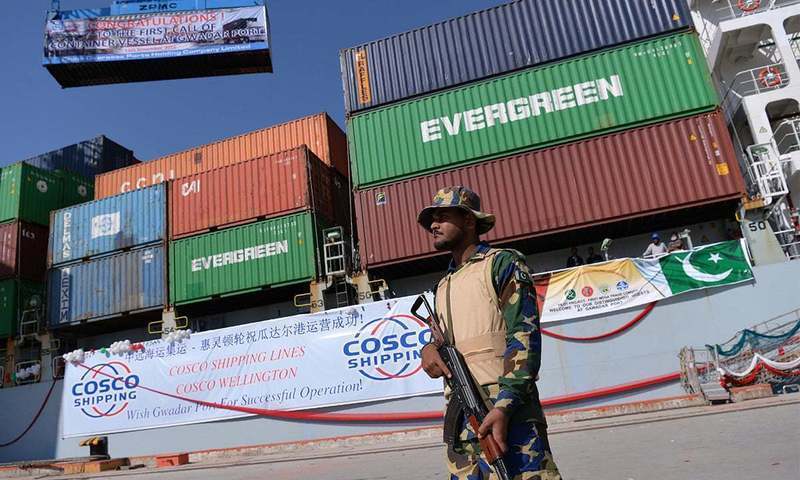ISLAMABAD: Three new state-of-the-art non-intrusive inspection (NII) containers scanning terminals were commissioned on Wednesday at the East and West Wharf of Karachi Port and Bin Qasim Port.
The terminals will facilitate increasing volumes of cargo traffic at Pakistani ports and provide essential security to the global supply chain.
Ambassador of Japan, Kuninori Matsuda and Federal Board of Revenue (FBR) Chairman Shabbar Zaidi inaugurated the NII terminals.
The NII terminals were set up under a Japanese grant of Rs2.78 billion. Japan International Cooperation Agency (JICA) implemented the project for security improvement at Karachi and Bin Qasim ports, a press release issued by the Embassy of Japan said.
The terminals include scanners, terminal buildings, image scanning and analysing equipment, waiting room for container drivers, and backup facility for electricity.
Each scanning terminal has been directly connected with Pakistan’s Web Based One Customs (WeBOC) system with a scanning capacity of 7 to 8 containers per hour, with a total capacity of 450 containers per day.
The project also trained 60 officers of Pakistan Customs as Image Scanning Analyst for effective utilisation and future sustainability of project.
At the handover ceremony, Ambassador Matsuda said Karachi Port and Bin Qasim Port are greatly contributing to the trade and economic activities of the country. These ports are not only important for Pakistan’s economic prosperity but also have greater significance as international trade ports due to its geographic location, he added.
The scanners installed would not only help in detecting illegal trade and smuggling to combat terrorism but would also improve the performance of ports to boost international trade.
The ambassador further emphasised the hope that the grant aid from Japan would support the work of Pakistan Customs and would further strengthen bonds between the two countries.
Speaking on the occasion, the FBR chairman thanked the Japanese government for its cooperation for this vital project. Member Customs (Operations), Dr Jawwad Uwais Agha said the NII functionality imparted by these scanners will enhance trade facilitation by Pakistan Customs.
Published in Dawn, October 10th, 2019
















































